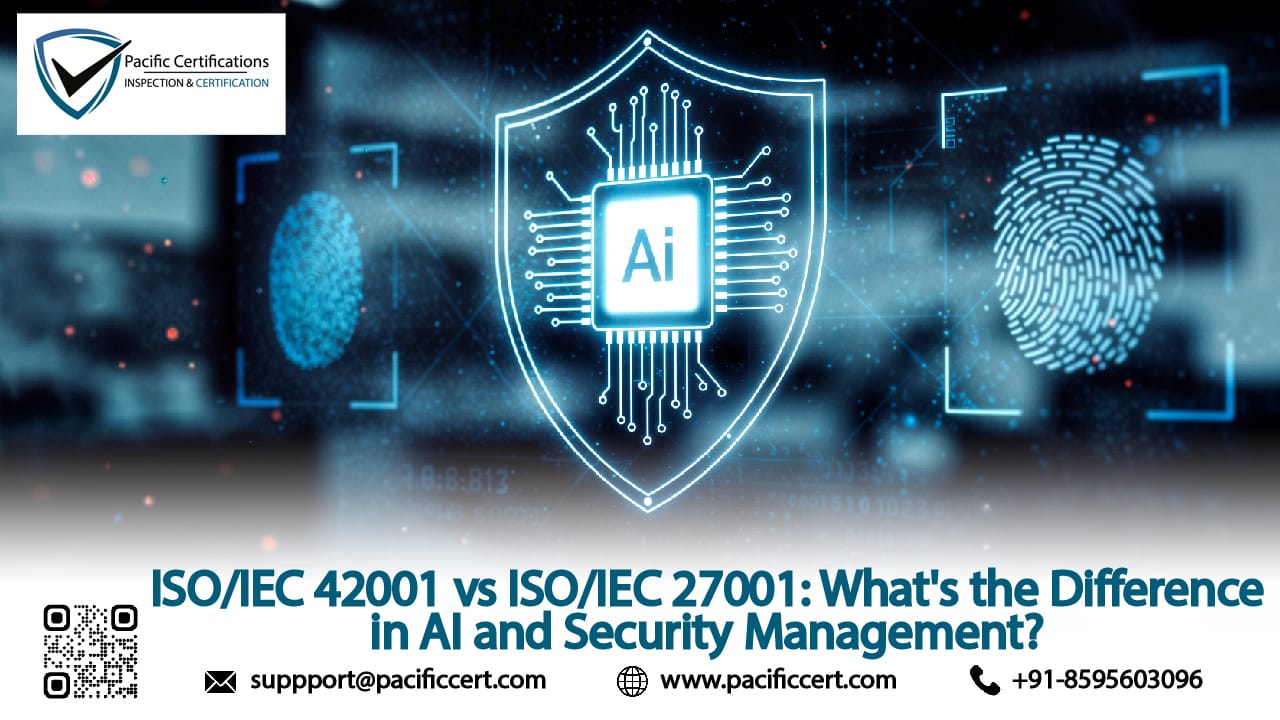
ISO Certifications in Malaysia
ISO certifications in Malaysia play an important role in helping businesses across various industries ensure quality, safety & regulatory compliance. Key certifications, such as ISO 9001 for Quality Management, ISO 14001 for Environmental Management, and ISO/IEC 27001 for Information Security, help Malaysian businesses improve operational efficiency, reduce risks and comply with national and international regulations. These certifications are recognized worldwide and are increasingly demanded by clients and partners seeking reliable and compliant suppliers. In a rapidly developing economy like Malaysia, ISO certifications help to build customer trust & enabling businesses to expand their market reach.
For ISO certification support in Malaysia, contact support@pacificcert.com.
Here's a brief overview of ISO certifications commonly sought after in Malaysia:
- ISO 9001 (Quality Management System):
- Documented quality management system (QMS) covering processes, procedures, and responsibilities.
- Implementation of quality policies and objectives.
- Regular internal audits and management reviews.
- Continuous improvement processes.
- ISO 14001 (Environmental Management System):
- Development of an environmental policy.
- Identification of environmental aspects and impacts.
- Implementation of controls and procedures to mitigate environmental risks.
- Monitoring and measurement of environmental performance.
- Compliance with relevant environmental legislation.
- ISO 45001 (Occupational Health and Safety Management System):
- Establishment of OH&S policy and objectives.
- Identification of hazards, risk assessment, and implementation of controls.
- OH&S management plan.
- Training and competency programs for employees.
- Emergency preparedness and response procedures.
- ISO 27001 (Information Security Management System):
- Risk assessment and management related to information security.
- Development of an information security policy.
- Implementation of controls to address identified risks.
- Regular monitoring and review of information security measures.
- Continuous improvement of the information security management system.
- ISO 22000 (Food Safety Management System):
- Development and implementation of a food safety management system.
- Prerequisite programs (PRPs) such as Good Manufacturing Practices (GMP) and Hazard Analysis and Critical Control Points (HACCP).
- Establishment of Food Safety Team and procedures for food safety hazard control.
- Monitoring, measurement, and analysis of food safety performance.
- Continuous improvement of the food safety management system.
Click here to find out more applicable standards to your industry
These are general requirements, and specific criteria may vary based on the nature of the organization, its activities, and the ISO certification sought. Additionally, in Malaysia, certification bodies accredited by the Department of Standards Malaysia (DSM) are responsible for conducting audits and issuing ISO certifications. Organizations seeking certification should engage with accredited certification bodies and ensure compliance with local regulations and standards.
Benefits of ISO Certifications in Malaysia
ISO certifications offer numerous benefits to organizations in Malaysia, similar to those experienced by businesses worldwide. Here are some key advantages:
- Credibility and Reputation: ISO certifications demonstrate that an organization complies with internationally recognized standards.
- Access to New Markets: In Malaysia, ISO certifications can facilitate trade with international partners and help organizations meet the requirements of global supply chains.
- Efficiency and Productivity: Implementing ISO standards leads to cost savings, increased productivity, and better resource utilization.
- Customer Satisfaction: ISO certifications focus on meeting customer requirements and continuously improving customer satisfaction.
- Legal and Regulatory Compliance: ISO certifications help organizations ensure compliance with relevant laws, regulations, and industry standards in Malaysia.
- Risk Management: ISO standards include requirements for risk assessment and management, helping organizations in Malaysia identify and mitigate potential risks.
- Decision Making: By implementing ISO-certified management systems, organizations in Malaysia can access reliable data, analyze performance metrics, and make informed decisions to drive business success.
- Employee Engagement: ISO certifications involve employees at all levels in the organization. Engaged employees are more motivated, productive, and committed to achieving organizational goals.
- Environmental Sustainability: ISO 14001 certification helps organizations in Malaysia reduce their environmental impact, conserve resources, and operate in a more sustainable manner.
Moreover, in a competitive market like Malaysia, ISO certifications can differentiate organizations from their competitors. They serve as tangible evidence of a commitment to quality, excellence, and continuous improvement, helping businesses attract customers, win contracts, and retain market share.
Contact us today at support@pacificcert.com to get your certification process started in Malaysia!
Which industries need ISO Certifications in Malaysia
ISO certifications are relevant and beneficial to organizations across various industries in Malaysia. Below are some sectors where ISO certifications are commonly sought:
- Manufacturing: Industries involved in manufacturing products ranging from electronics and automotive parts to food and beverages often pursue ISO certifications such as ISO 9001 (Quality Management System) and ISO 14001 (Environmental Management System) to ensure quality, efficiency, and environmental sustainability.
- Construction: Construction companies in Malaysia may seek ISO certifications like ISO 45001 (Occupational Health and Safety Management System) to ensure the safety and well-being of workers on construction sites. ISO 9001 may also be relevant to ensure quality control in construction projects.
- Healthcare: Hospitals, clinics, and healthcare facilities may pursue ISO 9001 certification to ensure the quality of healthcare services provided to patients. Additionally, ISO 13485 (Quality Management System for Medical Devices) may be relevant for organizations involved in the manufacturing or distribution of medical devices.
- Information Technology: With the growing importance of information security, IT companies in Malaysia may seek ISO 27001 certification (Information Security Management System) to protect sensitive information and ensure data security. ISO 9001 may also be relevant for IT service providers to ensure quality management practices.
- Oil and Gas: The oil and gas industry in Malaysia may pursue ISO certifications such as ISO 9001, ISO 14001, and ISO 45001 to ensure quality, environmental sustainability, and occupational health and safety in their operations. ISO 50001 (Energy Management System) may also be relevant for energy efficiency and conservation.
- Food and Beverage: Food manufacturers, restaurants, and food service providers often pursue ISO 22000 certification (Food Safety Management System) to ensure the safety and quality of food products. Additionally, certifications like HACCP (Hazard Analysis and Critical Control Points) may be required for food safety management.
- Logistics and Transportation: Logistics companies and transportation providers in Malaysia may seek ISO 9001 certification to ensure quality management practices in their operations. ISO 45001 may also be relevant to ensure occupational health and safety for employees involved in transportation and logistics activities.
- Banking and Finance: Financial institutions in Malaysia may pursue ISO 27001 certification to ensure the security of financial data and information systems. ISO 9001 may also be relevant for quality management in banking and financial services.
- Tourism and Hospitality: Hotels, resorts, and tourism-related businesses may pursue ISO certifications such as ISO 9001 and ISO 14001 to ensure quality service delivery and environmental sustainability practices.
- Education: Educational institutions in Malaysia may seek ISO certifications like ISO 9001 to ensure quality management practices in academic and administrative processes.
These are just a few examples, and ISO certifications can be beneficial to organizations in virtually any industry seeking to enhance quality, efficiency, safety, and environmental sustainability in their operations.
Pacific Certifications is accredited by ABIS, in case you need support with ISO certification in Malaysia, please contact us at suppport@pacificcert.com or +91-8595603096.

Red more: ISO certification for Superannuation Funds companies and applicable standards


